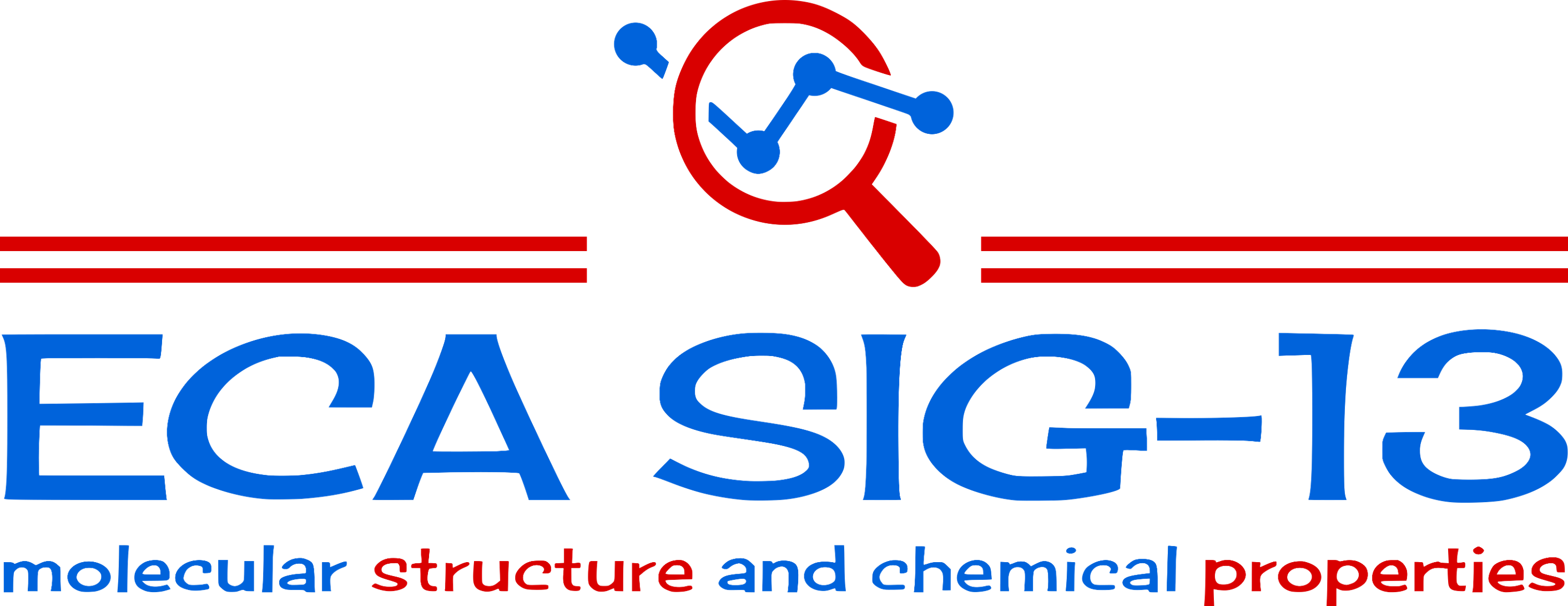Keynote lectures:
Kamil Dziubek (University of Vienna, AT)
Topic: High pressure crystallography
Title: Pressure-induced suppression of structural distortions manifrested in group-subgroup relationship
Chiara Massera (Parma University, IT)
Topic: Chemistry
Title: Combining mechanochemistry and structural analysis for the design of nanocrystalline reticular materials
Pance Naumov (NYU Abu Dhabi, AE)
Topic: Material Science
Title: Structural basis of mechanical properties and effects of molecular crystals
Anthony Linden (Zurich University, CH)
Topic: Software/Teaching
Title: The evolution of crystallographic software tools and their efficacy in teaching endeavours
Microsymposia:
MICROSYMPOSIA LIST | ECM34 2024
M8
Nucleation and crystal growth/Chaperones and crystallization
Chairs: Emmanuel Saridakis (IAASARS, GR), Monika Budayova-Spano (IBS, FR)
Speakers: Jose A. Gavira (CSIC-UGR, ES), Magdalena Kowacz (Polish Academy of Sciences, PL)
This microsymposium is dedicated to fundamental studies and methodology for nucleation and growth, mainly of macromolecular crystals, but extending to other types of molecules/ assemblies as well. The increasingly recognised potential of chaperones for crystallisation will be addressed.
M10
Structural-based drug discovery
Chairs: Rita Berisio (CNR-IBB, IT), Mariagrazia Pizza (Imperial College, UK)
Speakers: Juan Antonio Hermoso (CSIC, ES), Matthias Wilmanns (EMBL, DE)
The MS will address the contribution of structural biology to the understanding of mechanisms regulating key biological processes and its impact on drug/vaccine development.
M26
Chirality: Meeting point of crystallography, chemistry and topology
Chairs: Gerard Coquerel (Univeristy of Rouen, FR), Tom Leyssens (UC Luovain, BE)
Speakers: Elias Vlieg (Radboud University, NL), Ryusei Oketani (Osaka University, JP)
In this microsymposium, focus is placed on chirality of the solid-state and in particular how the properties of chiral solid states can be used in the context of applications such as resolution or deracemization. Talks will highlight the importance of unraveling how structure and chemical process development go hand in hand.
M27
High Pressure Crystallography: Exploring Structure and Method Development at Extreme Conditions
Chairs: Wilson Crichton (ESRF, FR)
Speakers: Philip Salmon (University of Bath, UK)
This session will highlight the state-of-the-art structural investigations of materials under extreme pressures and temperatures using both X-ray and neutron diffraction methods. Our goal is to disseminate new approaches. We will present major breakthroughs in the methodology for analyzing single-crystal X-ray diffraction data from multiphase mixtures of microcrystalline solids and powders. We will cover both in situstructure/property characterization and ex situ studies of materials synthesized under extreme conditions using diamond anvil cells and large-volume apparatus. Additionally, we will discuss complementary techniques, from spectroscopies to calculations, which further facilitate the elucidation of results that are challenging to obtain.
M28
Structural characterization of Energy Harvesting and Conversion Materials
Chairs: Maria Diaz-Lopez (CNRS, FR), Paula Macarena Abdala (ETH Zürich, CH)
Speakers: Karin Kleiner (University of Münster, DE)
This microsymposium will discuss methods for characterizing the structure of materials energy harvesting and conversion to understand their structure-performance relationships. Techniques to dress the structure of these functional materials at different time and length scale scales will be highlighted.
M29
Structural characterization in Functional materials
Chairs: Michael J. Pitcher (Campus CNRS Orléans, FR), Julia Payne (University of St. Andrews, UK)
Speakers: Ivana Evans (Durham University, UK), Olivier Perez (CNRS/ENSICAEN, Caen, FR)
This microsymposium will focus on the challenges and complexities of structural analysis across a broad range of functional inorganic and hybrid materials.
M30
Porous functional materials
Chairs: Donatella Armentano (University of Calabria, IT), Stefano Canossa (ETH Zurich, CH)
Speakers: Matt Cliffe (University of Nottingham, UK), Celia Castillo-Blas (University of Cambridge, UK)
Porous functional materials microsymposius would provide a broad overview of the recent results of applying cutting-edge crystallography to characterize porous materials such as metal–organic frameworks, and develop their applications.
M31
Noncovalent interactions in structure design
Chairs: Delia Haynes (Stellenbosch University, ZA), Riccardo Montis (University of Urbino, IT)
Speakers: Eugenia Peresypkina (Goethe Universität Frankfurt, DE), Kari Rissanen (University of Jyväskylä, FI)
This microsymposium will focus on the understanding and application of non-covalent interactions in the design of solid-state materials. Contributions relating to the nature and the use of hydrogen bonding, halogen bonding, chalcogen bonding or any other class of non-covalent interactions will be welcome.
M32
Advanced materials design with (co)crystal engineering: synthesis, crystal growth, structure and function
Chairs: Alessia Bacchi (University of Parma, IT), Eva Kovats Wigner (Budapest, Hungary, HU)
Speakers: Helena J. Shepherd (University of Kent, UK), René de Gelder ( Radboud University, NL)
This MS will review the state of the art of the design of advanced molecular and multicomponent materials by using crystal engineering. It will encompass material design, synthethic strategies, crystal growth, relations between structure and function.
M33
Correlate molecular structure with materials properties
Chairs: Kresimir Molcanov (Institut Ruđer Bošković, HR), Vania Andrè (University of Lisbon, PT)
Speakers: Anna Krawczuk (University of Göttingen, DE), Jeremy Rawson (University of Windsor, CA)
New materials with targeted physical properties are an area of current interest from both, fundamental and applicative points of view. Molecular materials are chemically tunable and thus good candidates to reach this goal. They can exhibit a single property such as gas storage, sensing, magnetism or catalysts, but they can also be multifunctional with two or more physical properties of interest. Thus, bulk properties of a material stem from structure of its constituent molecules. A clever choice of the constituent molecules could allow the appearance of an unusual combination of physical properties in the same compound, or even a mutual interplay or synergy of the properties involved.
M40
Techniques to discover polymorphism: mechanochemistry, crystal growth and others
Chairs: Nora May (HUN-REN, HU), Paola Paoli (University of Florence, IT)
Speakers: Michael Zaworotko (University of Limerick, IE), Adam Michalchuk (University of Birmingham, UK)
Understanding and controlling the structural and energetic factors which drive the supramolecular arrangement in crystals, is still a matter of great importance today in order to be able to produce materials with the desired properties. Hence the relevance of polymorphism in many area (chemistry, materials, pharmaceutics), given that polymorphs can greatly differ as for their chemical, physical, thermodynamic and mechanical properties, just to name a few. This microsymposium will provide an opportunity to present relevant results in which polymorphs formation is investigated under different conditions and with different techniques.
